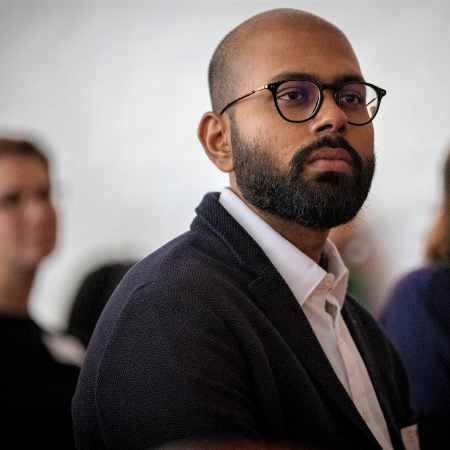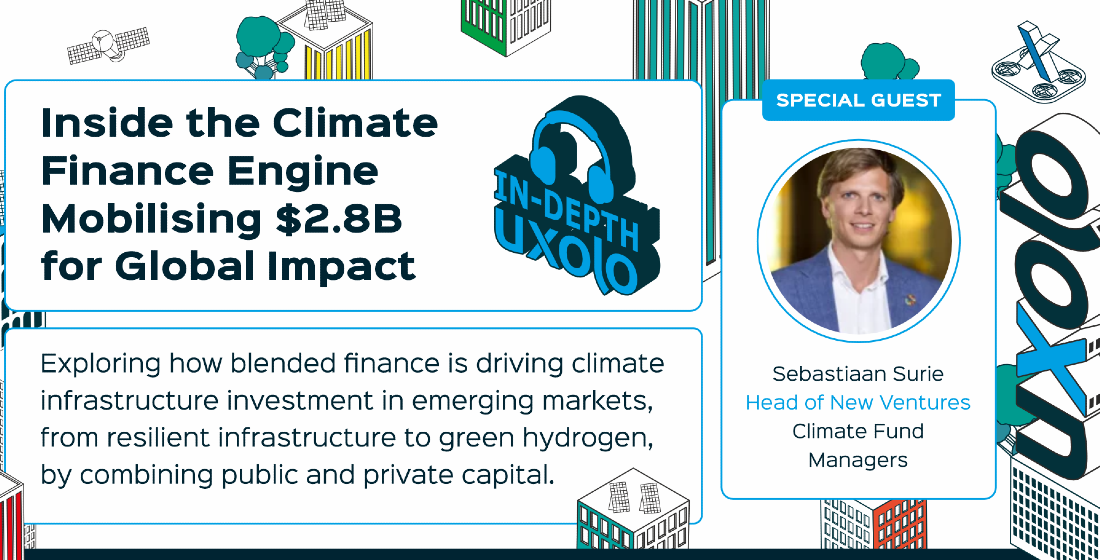Is faith-based finance making a dent in impact investing?
With their values aligned with SDGs, faith-based investors are looking to climate finance and social impact projects, while keeping their risk low and returns steady.

With a mandate to make a positive change, religious organisations are among the richest asset owners and investors, and are increasingly looking at impact investments to make market returns. Unique to these investments are faith values, which decide the sectors, regions, and projects that receive the funds. In many cases, those values fit comfortably within the SDG puzzle. However, overall, faith-based investors have yet to develop major impact investing portfolios.
While there are no publicly available figures for the value of the assets owned by religious organisations, they are estimated to own over 7% of the Earth’s land surface. The Islamic finance industry was estimated to be worth $2.4 trillion at the end of 2017, according to the 2018 Global Islamic Finance Report, and in 2020 was almost $3 trillion, a figure that is expected to grow at a compound annual growth rate of 5% until 2024.
“What we do see is a big trend where faith-based investors have woken up and now understand that a lot of their assets are stuck in very traditional investment vehicles, as they need those revenues and returns from those investments to maintain churches, pay pensions, etc. So it is important for them to make sufficient returns, but they are also realising that in some cases there is a complete misalignment between their values and those funds they have been investing in,” says Maarten Toussaint, COO of FIIND Impact, an investment consultant and advisor, working with faith-based investors.
Even though faith-based investors have noble intentions, their investments are not bereft of returns. “We target market rate with our returns,” says Aaron Pinnock, senior impact investment analyst at the Church Commissioners for England. The portfolio’s target is returns of CPIH +4%. “So, in the last 30 years, our returns have averaged just over 9%, and that's the kind of target that we are looking for going forward. We are not looking at impact as taking financial returns off the table, but it has to meet the kind of return requirement that will make other investments possible.”
The Church Commissioners of England, a charitable body, owns a diverse portfolio of assets, currently worth £9.2 billion, and over 100,000 acres of land and property in the UK, including farmlands. The Church Commissioners is responsible for managing those assets by creating long-term financial returns to fund the activities and maintenance of their churches, cathedrals, and dioceses, but they also have a mandate that the investments must benefit the wider world.
Part of the Anglican Communion in the US, the Episcopal Church has a Church Pension Fund (CPF) with a portfolio of nearly $18 billion. As of March 31, 2021, the value of CPF’s portfolio was $17.3 billion, significantly higher than the $13 billion of the previous year. Including results over the COVID-19 pandemic years, CPF has generated an annualised return of 9.5% over 10 years, exceeding its investment goal of 6.2% and the market benchmark of 7.5%.
“The investments we make need to meet a risk-return threshold,” says Christopher Rowe, managing director, investments, Church Pension Group. “That supports our ability to keep the promises that we make to pension fund beneficiaries. Our impact investments undergo a fair amount of scrutiny, and we make sure that we are not compromising return in our interest to make a positive social impact.”
Faith and climate finance
Although different faiths uphold different values, there are thematic overlaps when it comes to impact investing. In 2020, the Global Impact Investment Network (GIIN) conducted a survey of faith-based impact investors and found that the top three UN Sustainable Development Goals (SDGs) featuring in faith-based portfolios were decent work and economic growth (81%), affordable and clean energy (68%), and reduced inequalities (68%). These SDGs also appear as top themes for respondents of the 2019 Annual Impact Investor Survey—the GIIN’s flagship research report. The commonalities between faith-based investors and impact investors’ interests in the SDGs suggest opportunities for collaboration to pursue shared social and environmental goals. “Two of the largest spaces that we see faith-based investors making investments in are climate mitigation and quality jobs, cutting across different faiths,” says Kate Walsh, associate director of Faith-Based Investors Initiatives for the GIIN.
A fundamental value espoused by faith-based investors is “care for god’s creation”, which is interpreted in various ways within climate finance. “This value is aligned with SDG 7.2, which is to increase renewable energy, so we get clean air, or SDG 9.4, which is upgrading infrastructure and retrofitting industries to make them sustainable by 2030, or SDG 2.5, which is to maintain the genetic diversity of seeds, cultivated plants, farmed and domesticated animals and their related wild species. These are very tangible SDGs which are aligned with the faith values,” says Sophie Robé, founder and CEO of FIIND Impact.
In 2019, the Church Commissioners had investments worth £480 million contributing to environmental solutions. In 2020, that rose to £630 million out of their portfolio worth £9.2 billion. “This growth is a mixture of an increase in value in existing assets, and new commitments,” says Pinnock.
Unlike most impact investors whose climate finance mandates are limited to sustainable infrastructure and clean energy sectors, faith-based investors also insist on assessing the social impact of these projects. “Just transition is the keyword for faith investors,” says Robé. “A proper investment due diligence focused on social and Do No Significant Harm (DNSH) principles is a way to overcome this perception”. In 2020, 16 US congregations of Dominican sisters pooled more than $46 million to establish an investment funds initiative, in collaboration with Morgan Stanley, aimed at financing solutions to address climate change and assist communities worldwide most at risk. The sisters provided initial seeding of $46.6 million for the funds, which with additional capital investments have grown to $130 million.
Faith organisations’ mandates are not just driven by positive impact but also disinvestments in the form of “ethical exclusions”. For instance, The Church of England excludes direct investments companies involved in indiscriminate weaponry, conventional weaponry, pornography, tobacco, gambling, non-military rearms, high interest rate lending, human embryonic cloning, extraction of thermal coal and production of oil from oil sands, subject to revenue thresholds.
Last year, ahead of the G20 Summit in Rome and COP26 in Glasgow, 72 faith institutions, including 37 from the UK, announced their divestment from fossil fuels in the largest-ever joint divestment announcement by religious organisations, representing more than $4.2 billion in financial assets. “Besides thermal coal and the production of oil from oil sands, the Church Commissioners are comfortable with investing into other forms of energy, as long as that company has a credible transition plan to reach net zero by 2050. We first engage with those companies and if they do not have a plan to transition we would divest,” says Pinnock. The Commissioners have committed to divest from any fossil fuel company by 2023 that isn’t making “meaningful progress to being aligned with the goals of the Paris Agreement”.
The Church Pension Group “looks at how to invest through the glide path towards a lower carbon economy”, says Rowe. “We are mindful of the opportunities and risks associated with the transition to a lower carbon economy. Focusing on these opportunities and risks in the context of investment due diligence blends both our role as fiduciaries and the Church’s call to care for creation.”
Balancing risk-return
According to Walsh, faith-based investors are often heavily reliant on their investment advisors and consultants to guide investment strategies. Very few faith-based institutions have established in-house teams with investment experience, largely due to limited resources to hire dedicated investment staff.
Faith-based investors are risk-averse and tend to invest in low-risk projects. According to the GIIN report, some faith-based investors manage larger pools of capital, typically overseeing endowments or pensions funds. Like their smaller counterparts, faith-based investors with endowments, such as national religious organizations or foundations, also rely on their investments as a source of funding for their programmatic work. Therefore, they are hesitant to invest in unfamiliar strategies, wary pursuing new types of investments may risk the financial performance of their portfolios. Like their secular counterparts, faith-based pension funds also pursue market-rate returns. As fiduciaries, these asset managers have clients reliant on them to manage their pensions for retirement and as a result, aim for predictable, steady market-rate returns.
On the flipside, an unusually high market rate draws suspicion for faith-based investors. “We have seen that in continental Europe, some traditional religions, including German churches, may not be involved in private equity because of the perceived exploitation and very aggressive practices in private equity,” says Robé. But when it comes to impact private equity, where the social effects are not speculative and there are best practices employed, faith investors are making new allocations there.
For the Church Pension Group, their risk appetite is also linked with liquidity. “If we are locking up money for five or 10 years, clearly we will require a higher rate of return for that liquidity risk. We also factor in asset class risk, country risk and other considerations,” says Rowe. “Given the work involved underwriting and monitoring investments, we need to be investing in size. For impact investments, while we will not compromise on expected returns, we are willing to invest in smaller amounts and do incremental work to increase consideration for funds with positive impact.”
Seeking collaborations
Although leading faith-based impact investors are active in the market, faith-based organizations, as a whole, are not a prominent group within the impact investing community. While there is willingness to collaborate between faith-based investors, private and public financiers interested in engaging with faith-based investors could benefit from learning about the organisational structure of religious groups, and potential barriers these organisational structures pose in reaching those who hold influence over faith-based assets.
For example, many faiths are not organised in centralized structures (e.g., Buddhism, Judaism, Quakerism) and therefore cannot be engaged through a single governing body. As such, systematically reaching large numbers of such faith-based investors can be challenging. On the other hand, there are faiths organized with centralized governing bodies (e.g., Catholicism, Mormonism); however, these governing bodies tend to manage their finances privately and information on their investment strategies and interests is not readily available. “Evangelical and Protestant organisations are comparatively more open with their data online but with Catholic and Islamic finance, it is much more difficult to find data and there are some other religions like Buddhist organization, where there is hardly any data available,” says Toussaint.
The potential for faith-based investors to play a key role in impact investing is promising. “Out of the $3 trillion of assets, if you move 15 to 20 percent into impact investing, and this is new money, so with new mandates and right education, you could make sure that all of it does not go towards solar panels in Germany, for instance, but into social impact in emerging markets – and these investors are embracing the idea,” adds Robé.





